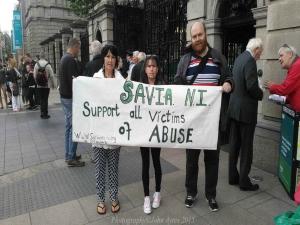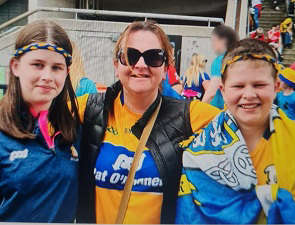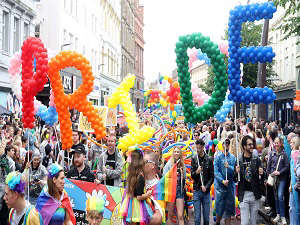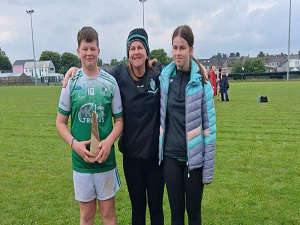
The bill for compensating survivors of child abuse in Northern Ireland could run to £30 million, campaigners have warned.
Some 524 victims could be eligible to make claims over their treatment in institutions from 1922-1995, including at the notorious Kincora Boys' Home in Belfast and by paedophile priest Brendan Smyth.
Campaigners are urging the Stormont Executive to agree to a special redress scheme, with basic payments starting at £10,000, to avoid lengthy, traumatic and expensive civil actions in the courts.
They said it could save £10m off the final bill.
Margaret McGuckin of Survivors and Victims of Institutional Abuse, said: "It is now up to ministers to deliver.
"Redress is a practical way for Government and others to say sorry for how badly they let us down as children. We suffered then and have suffered the consequences through our lives ever since - psychological damage and lost opportunities. We shouldn't have to suffer on into our old age as well."
The chairman of Northern Ireland's Historical Institutional Abuse Inquiry, Sir Anthony Hart, is due to report to Stormont ministers in January on 157 days of public hearings and evidence from 392 witnesses.
Survivors of abuse are to take their campaign for a suitable redress scheme to the doors of the Assembly on Monday.
Jon McCourt, of Survivors North West, called on Stormont chiefs to listen closely and take their advice seriously.
"Victims and survivors are a very vulnerable group - some of them are very elderly and have health problems. The Executive office should move with urgency to consult with victims and to then set up the redress scheme," he said.
"We have waited for justice for long enough."
Survivors, backed by Amnesty International, called for the Assembly to "secure and ring fence" money for compensation funds.
The £20m to £30m costs were calculated by Quarter Chartered Accountants. The company was commissioned by the independent Panel of Experts on Redress, which includes Ms McGuckin and Mr McCourt, survivors, their representative groups, academics, lawyers, human rights organisations and others.
It proposed a basic £10,000 payment for anyone who suffered child abuse in an institution, with length of time spent in a home also taken into account, along with assessment of mental, physical and sexual abuse suffered.
Survivors said a Government-run compensation scheme would be more cost-effective and much less traumatic for victims than the courts.
The campaigners noted that the final number of people eligible to make a claim for their treatment will not be known until Sir Anthony Hart's report is finished.
They urged Stormont ministers to open talks on a potential scheme and on the financial contribution to be made by religious orders and other organisations which ran many of the children's homes where abuse took place.
Public hearings at the Historical Institutional Abuse Inquiry ended in July after two and a half years.
Hundreds of vulnerable former residents provided deeply-personal and harrowing claims of sexual, physical and emotional suffering over many decades in care homes run by the church, state and the Barnardo's children's charity.
Some of the most devastating incidents involved abuse inflicted at the Kincora home, and by the notorious paedophile priest Brendan Smyth.
The report by the Panel of Experts on Redress will be presented in Parliament Buildings, Stormont on Monday.


 Mother and two children murdered in Maguiresbridge to be buried together By Jonathan McCambridge and Rebecca Black, PA
Mother and two children murdered in Maguiresbridge to be buried together By Jonathan McCambridge and Rebecca Black, PA
 Surgeon tasked with tackling waiting lists says they are a ‘national shame’
Surgeon tasked with tackling waiting lists says they are a ‘national shame’
 First Minister disappointed to not attend Belfast Pride this year
First Minister disappointed to not attend Belfast Pride this year
 Crowds expected at vigil for mother and children killed in Co Fermanagh shooting
Crowds expected at vigil for mother and children killed in Co Fermanagh shooting